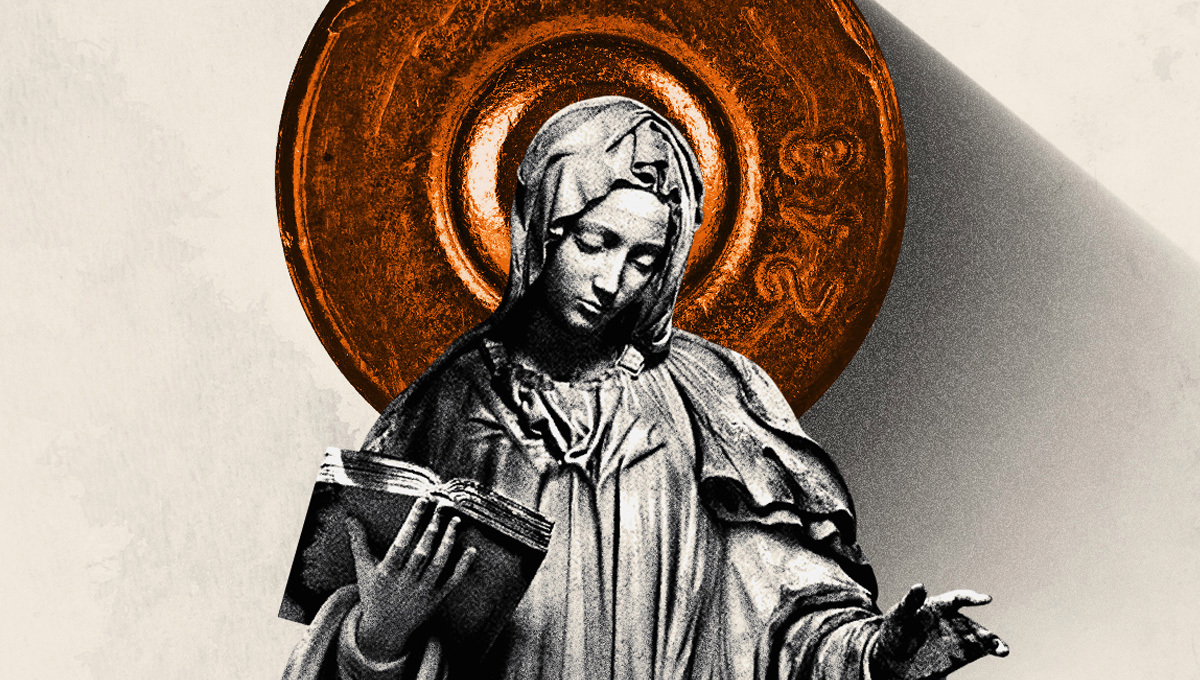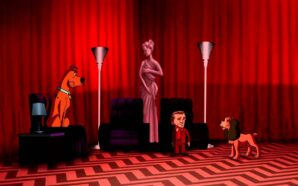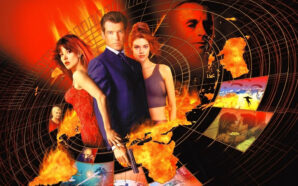Tony Soprano is a man who refuses to change. The Tony we get at the beginning of the series’ six-season run is identical to the Tony at the end. Yet the head of the Sopranos family – both families, in fact – is one of the most developed and fleshed out characters in television history, remaining on the Mount Rushmore of the morally questionable protagonists he helped pioneer. The Sopranos isn’t the story of Tony evolving but instead focuses on stripping him back, layer by layer, until we, the audience, know who he truly is and always has been from the first scene of the pilot.
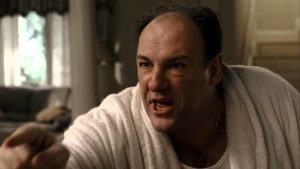 It’s not your standard character arc; six seasons of Tony digging his heels in and justifying himself rather than growing in the traditional sense. It’s the complete opposite of Breaking Bad, a series it is often compared to. Vince Gilligan pitched that show as “you take Mr. Chips and turn him into Scarface”, and in The Sopranos Tony is already in his final form at the beginning of the show. The plot is about getting to know him, understand him, until there’s no more left to learn. When the man is stripped bare and has outright refused to change, the idea at the centre of the final season, the show cuts to black and suddenly ends. He’s not dead, although he could be, that’s part of the point, he could die at any moment, that’s how he lives his life, but I interpret the ending as the viewer no longer being privy to his life because we have learnt all there is to know.
It’s not your standard character arc; six seasons of Tony digging his heels in and justifying himself rather than growing in the traditional sense. It’s the complete opposite of Breaking Bad, a series it is often compared to. Vince Gilligan pitched that show as “you take Mr. Chips and turn him into Scarface”, and in The Sopranos Tony is already in his final form at the beginning of the show. The plot is about getting to know him, understand him, until there’s no more left to learn. When the man is stripped bare and has outright refused to change, the idea at the centre of the final season, the show cuts to black and suddenly ends. He’s not dead, although he could be, that’s part of the point, he could die at any moment, that’s how he lives his life, but I interpret the ending as the viewer no longer being privy to his life because we have learnt all there is to know.
There are some minor changes informed by his life experiences in the series, like an altered sense of humour and various relationships in his life dissolving or forming as the plot demands, but Tony’s largely steadfast and rejects the various opportunities to change. The situation changes, not Tony. In fact, the situation often repeats, highlighting the cyclical nature of Tony’s way of life. How many times in the show does a made man get released from prison, try to reintegrate himself back into the family, get into conflict with Tony and question his authority, and then have to be dealt with brutally? Richie Aprile; Ralphie Cifaretto; Tony Blundetto. Every season but the first and last features the formula.
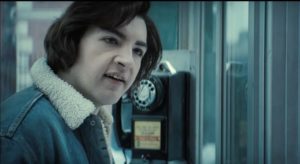 With regards to this philosophy for character development without character change, the upcoming prequel movie The Many Saints of Newark seems to completely counter the essence of The Sopranos. We see a young Tony taking his first steps into a life of crime; that life clearly being more attainable than that of a varsity athlete. Tony will change and evolve into the man we know from the show – the man we already fully understand. That violates the core tenet of The Sopranos, a show decrypting a man as he is, not charting his journey as some grand arc from remarkable student to master criminal.
With regards to this philosophy for character development without character change, the upcoming prequel movie The Many Saints of Newark seems to completely counter the essence of The Sopranos. We see a young Tony taking his first steps into a life of crime; that life clearly being more attainable than that of a varsity athlete. Tony will change and evolve into the man we know from the show – the man we already fully understand. That violates the core tenet of The Sopranos, a show decrypting a man as he is, not charting his journey as some grand arc from remarkable student to master criminal.
This is an arc we already know from the tales told in the show. Backstory is often just designed to be backstory, not a story unto itself. It’s like when George R.R. Martin shoots down the idea of a Game of Thrones prequel about Robert’s Rebellion: that isn’t an actual story, it’s just there to inform the present action or a character in the show. Are we going to see a Mad Men Dick Whitman movie next? But The Many Saints of Newark is more than just unnecessary like a Game of Thrones prequel. An objective retelling of Tony’s past is far less interesting than learning of it through Tony’s contorted memories and perception of his past. That’s what made his backstory interesting: the fact that Tony was along for the ride in the show, discovering why he is the way that he is along with the audience via the genius psychiatrist sessions where his warped subjective memory takes over.
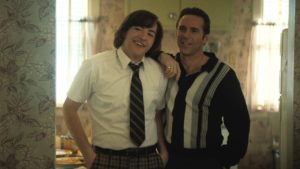 I’ll admit, however negative I am on the film’s existence, the trailer looks good and I got chills at the end hearing Woke Up This Morning again. The young Tony is being played by James Gandolfini’s son Michael and its hard not to feel some pride and comfort in the casting. The film is also supposed to largely focus on Alessandro Nivola’s Dickie Moltisanti, with Tony only a supporting character, albeit one featured prominently in the marketing for obvious reasons. I’ll breathe a sigh of relief if the film is about new characters and this specific, tumultuous point in time in Newark, but if that’s the case then why make it a Sopranos prequel? I hope The Many Saints of Newark is a worthy addition but this is a story where the sin of an unnecessary prequel is exacerbated by a huge degree because of how much the very existence of one violates the nature of the original show’s storytelling and character examination.
I’ll admit, however negative I am on the film’s existence, the trailer looks good and I got chills at the end hearing Woke Up This Morning again. The young Tony is being played by James Gandolfini’s son Michael and its hard not to feel some pride and comfort in the casting. The film is also supposed to largely focus on Alessandro Nivola’s Dickie Moltisanti, with Tony only a supporting character, albeit one featured prominently in the marketing for obvious reasons. I’ll breathe a sigh of relief if the film is about new characters and this specific, tumultuous point in time in Newark, but if that’s the case then why make it a Sopranos prequel? I hope The Many Saints of Newark is a worthy addition but this is a story where the sin of an unnecessary prequel is exacerbated by a huge degree because of how much the very existence of one violates the nature of the original show’s storytelling and character examination.
What are your thoughts on The Many Saints of Newark? Let me know in the comments and be sure to geek out with me about TV, movies and video-games on Twitter @kylebrrtt.




